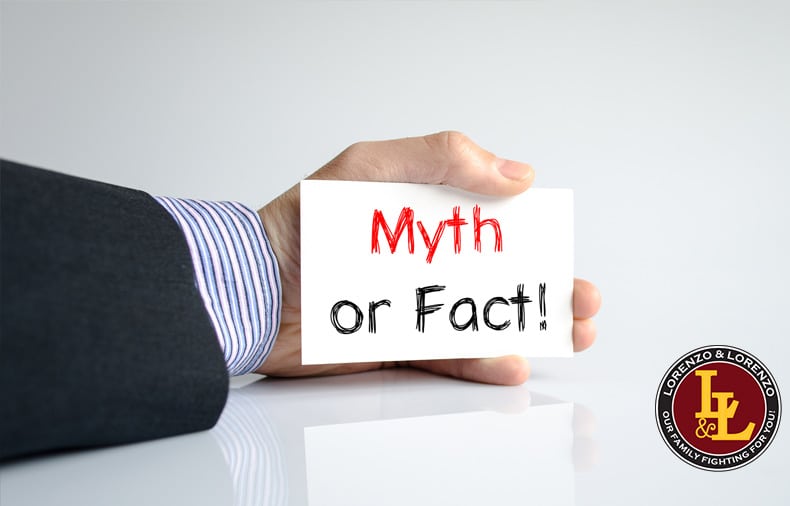Legal advice on protecting yourself and your business from frivolous lawsuits

What is a frivolous lawsuit?
There are several ways to define a frivolous lawsuit. The type most commonly seen in the media is filed for seemingly ridiculous reasons: These are also called “meritless” or “baseless” lawsuits because they have no basis in fact. Another type of frivolous lawsuit is the kind that’s filed purely to harass or embarrass the other side.
Frivolous lawsuits can involve other legal actions that are also deemed frivolous. For example, there can be frivolous motions, frivolous appeals, and so on.
Examples of lawsuits that might be considered frivolous
What counts as a frivolous lawsuit?
The key factor is often a claim that’s so outlandish or unreasonable that it has no chance of succeeding in court.
For example, if someone sues you for emotional distress because your dog barked at them, they won’t be able to provide any medical or scientific evidence that supports their claim. So, ultimately, their claim won’t have any merit.
Frivolous lawsuits can also be part of a legal strategy designed to harass, humiliate, intimidate or delay the actions of the opposing party.
For example, someone could file a frivolous lawsuit to stop you from building a new property on contested land. Until it’s thrown out, you’ll be tied up in court proceedings, so you won’t be able to move forward with construction.
A hallmark of frivolous lawsuits is an exaggerated amount of damages requested by the plaintiff. This is usually, but not always, in the millions.
Why do people file frivolous lawsuits?
People file baseless claims for many reasons. Some are emotional; some are calculated. Here are just a few examples:
- They want a payout.
- They want to avoid blame for an accident by going on the offensive.
- They want to waste a person’s or company’s time and money because they have a grudge against them.
- They want to encourage bad publicity for a person or company.
- They want to impact changes in an industry through an attention-grabbing headline.
- They want to make a statement or political point.
Do You Have a Strong Personal Injury Case?
These 5 signs might mean that your Florida injury lawsuit has a good shot at success.
How should you respond to a frivolous lawsuit?
What are your legal options when you’ve been hit with a frivolous lawsuit?
You’ll have a few different avenues for action:
- File a motion to dismiss. Many frivolous lawsuits get tossed out at this stage. A judge reviews the claim and the evidence and may rule that the plaintiff’s case has a lack of merit.
- File a counterclaim. If you suspect that the lawsuit has been filed simply to harass you, you can counter-sue for things like fraud or abuse of process. If you’re successful, you might be able to get the case thrown out and be awarded monetary damages.
- Pursue sanctions. If the court finds the lawsuit to be frivolous, your attorney might be able to argue that sanctions should be imposed on the plaintiff or their attorney, including orders to pay your legal fees and other adverse consequences intended to discourage inappropriate behavior and ensure compliance with the rules of the court.
- Name them a vexatious litigant. Some states keep lists of “vexatious litigants,” or people who have filed frivolous lawsuits multiple times. You might be able to get the case dismissed if you can prove that the plaintiff is vexatious.
These are just a few variations of a frivolous lawsuit defense. There can be others, so it’s worth talking to an experienced personal injury attorney about your options.
Are frivolous lawsuits illegal?
While it isn’t technically illegal to file a frivolous lawsuit, there can be consequences for those who knowingly file these lawsuits, especially if they’re repeat offenders.
What are the consequences of filing a frivolous lawsuit?
If you can prove that someone has filed a frivolous lawsuit against you, they might face a number of ramifications, including:
- Fines or repayment of court costs
- Charges of fraud, abuse of process, or contempt of court
- Being registered as a vexatious litigant
In addition to clients, lawyers can also get into trouble for filing frivolous lawsuits. For example, if a personal injury lawyer knows full well that their client is running an insurance scam, they can be disciplined for proceeding with the lawsuit anyway. Their consequences can include fines, sanctions and even the suspension of their law license.
Top Myths & Misconceptions About Personal Injury Lawsuits
Don’t be misled by these common myths surrounding personal injury lawsuits and accident claims.
How does Florida define vexatious litigation, and what are the consequences?
According to Florida law, vexatious litigation is when a person “repeatedly abuses the judicial process” for their own gain 5 or more times during a 5-year period. It can cover both frivolous and malicious lawsuits.
If someone is found guilty of being a vexatious litigant, they can be forced to repay court costs, and they’ll be formally recognized and registered as vexatious. This can affect their ability to file lawsuits in the future since they’ll be considered a burden on the court system.
Does business insurance cover frivolous lawsuits?
If you own a business, you might be worried about clients or customers filing a frivolous lawsuit against you. The good news is that business insurance can help.
General liability insurance can cover accusations of personal injury and property damage. While errors and omissions (E&O) insurance can cover accusations of negligence or unsatisfactory services.
Depending on your particular insurance policy, it might pay for court costs, attorney fees, and even settlement packages if you lose the lawsuit.
Frivolous lawsuits in the media
It isn’t uncommon for frivolous lawsuits to hit the news. Sometimes, they’re just an oddity or curiosity; other times, they’re part of a calculated plan of attack by one party’s lawyers.
Here are just a few frivolous lawsuits that have made headlines in recent years.
Michael Jordan look-alike lawsuit
In 2006, a man sued basketball player Michael Jordan and Nike founder Phil Knight for $832 million. He claimed that his resemblance to Jordan was a cause of severe emotional distress. He sued for defamation, permanent injury, and pain and suffering. He sued Jordan for his likeness and Knight for promoting him. The case was ultimately dismissed.
Starbucks iced coffee lawsuit
In 2016, a woman filed suit against Starbucks for putting too much ice in their chilled beverages. She claimed that it was a misleading advertising practice since they failed to provide as much coffee as their marketing implied. She sued for $5 million.
Subway sandwich size lawsuit
In 2016, after a teenager found that his Subway foot-long actually measured 11 inches, 9 class action lawsuits were filed against Subway for the same reason. They filed under the guise of “consumer protection laws,” protecting customers from unfair or deceptive advertising. The cases were thrown out of court.
McDonald’s lawsuit over napkin dispute
In 2014, a man sued McDonald’s for $1.5 million after his complaint over napkins led to an allegedly racist remark from the manager. He claimed mental anguish and an inability to work in the days after the remark.
Kraft lawsuit over prep time of macaroni and cheese
In 2022, a woman decided to take Kraft to court after discovering that their microwavable mac-and-cheese cups took longer to cook than advertised. She said that the suggested three and a half minutes didn’t account for prep time. She sought $5 million in damages because “deceptive advertising is deceptive advertising.”
Contact an experienced Florida frivolous lawsuit attorney
If you or your business is the target of a frivolous lawsuit in Tampa or the surrounding area, contact the experienced personal injury attorneys at Lorenzo & Lorenzo. Our firm has a long history of successful outcomes in fighting for the rights of victims of frivolous lawsuits. Let us help you build a strong defense and pursue appropriate sanctions.








